This travel wiki page of Israel will help guide travelers with quick and relevant information to consider when planning and visiting the country. It is difficult to find all the relevant information on Israel’s culture, safety, travel restrictions, and things to do, so we summarize it all here. If anything is stale or outdated, please let us know! Let’s dive in and explore more high-level information as an Israel trip planner.
Last updated June 6th of 2023.
Table of contents
National Information & Culture

Israel, officially the State of Israel, is a country located in Southern Levant, a region historically known as Canaan. Though small, Israel is geographically diverse, with an arid desert, fertile valleys, mountain ranges, and coastal plains. Israel shares land borders with Lebanon, Syria, Jordan, and Egypt. The Mediterranean Sea also borders the country to the west. Tel Aviv is the country’s economic and technological center. At the same time, Jerusalem, the proclaimed capital and the seat of government, holds great significance for Judaism, Christianity, and Islam, making it a city of immense religious and historical importance. Meanwhile, the State of Israel’s currency is the New Israel Shekel (NIS) or shekel/s.
As the biblical Holy Land, Israel is a popular pilgrimage destination for Jews, Christians, and Muslims and has some of the most regarded religious places. Moreover, Israeli cities are known for their intact archeological grandeur and wonders! Some of which date back over 4000 years.
An OECD member, Israel has a high-tech and innovative economy, often called the “Start-up Nation.” Furthermore, Israel has the world’s 28th-largest economy by nominal GDP and ranks 22nd on the Human Development Index.
While Israel is a modern and progressive country, respecting its religious and cultural sensitivities is essential. Dress modestly (covering arms, shoulders, legs, and no pants for women) when visiting holy sites, and be aware of local customs and traditions. Shabbat, the Jewish day of rest, begins on sunset Friday and lasts until Saturday evening. During which many businesses and transportation services may be limited. It is a time for relaxation and family gatherings, so plan accordingly.
Visit the Official Tourism Website of Israel for more tips and information when planning your trip.
Special Travel Considerations
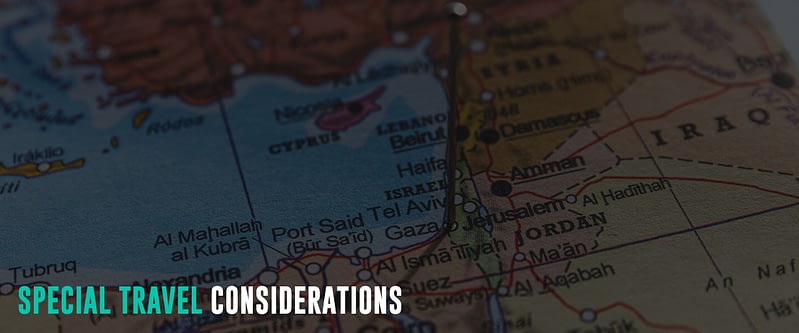
Each country and destination has rules and regulations that every traveler must consider. Hence, check the following considerations for hassle-free travel to Israel.
Covid-19 Policy
Starting May 15, 2023, there are no longer COVID-19 restrictions on entering Israel from abroad. However, the Covid-19 policy of Israel may vary over time with the evolution of the pandemic. Hence, monitor the latest Covid-19 entry requirements when planning your trip.
Travel Insurance
As of May 15, 2023, all tourists visiting Israel do not need to present medical insurance policy which includes Covid-19 coverage. However, it is advisable to have one that covers emergency medical treatment, including Covid-19, repatriation, and evacuation. Travel insurance can protect you against the inconvenience of injury, medical emergencies, theft, and flight cancellations. In addition, it is comprehensive protection in case anything goes wrong with your trip.
Visa Information
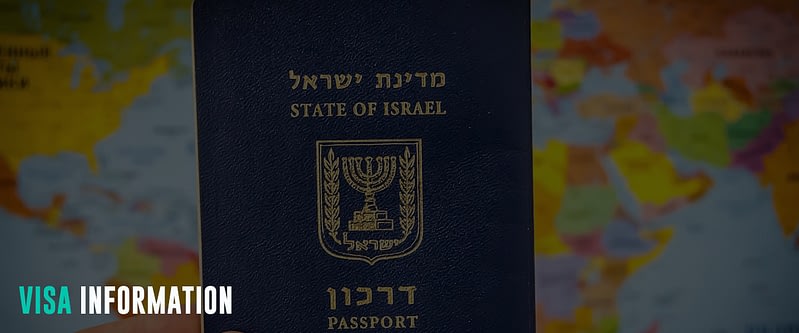
Visitors to Israel must obtain a visa from one of the Israeli diplomatic missions unless they come from one of the 101 visa-exempt countries. Meanwhile, nationals from 23 countries require confirmation from the Israeli Foreign Ministry before a tourist visa is issued.
Tourist and visitor entry visa applications are subject to $26 (95 NIS) service fees and must be submitted in person to Israel Representatives and Missions abroad or at the Population and Immigration Authority offices in Israel. For group tourism purposes, licensed travel agencies with permits from the Population and Immigration Authority Border Control can also apply for an online group tourist visa on their behalf. An approved tourist visa to Israel allows visitors for a maximum stay of three months.
In addition to visas, all travelers to Israel must have a six months valid passport from the date they depart the country. Also, note that Israeli immigration no more extends stamps to passports and most border crossings at the airport. Nonetheless, to avoid inconvenience, Israel Tourism recommends that tourists continuing from Israel to Arab countries officially request that an Israeli stamp does not appear on their passport. The tourist must notify the clerk of this request before stamping the documents.
Electronic Gate Pass
The ‘Electronic Gate Pass’ is a card issued to visitors to Israel that will serve as the tourist’s credentials and official form of identification while in Israel. It contains visa information and status, passport details, and date of arrival and departure to Israel. The ‘Electronic Gate Pass’ also replaces the system whereby passports were stamped. Hence, they must always keep the card as proof of their visa status.
Popular Attractions
Also known as the Holy Land, Israel has some of the world’s most religious places and is a popular pilgrimage destination for Jews, Christians, and Muslims. Also, Israeli cities and attractions are famous for their archeological wonders, with some dating back over 4000 years.
Old City of Jerusalem
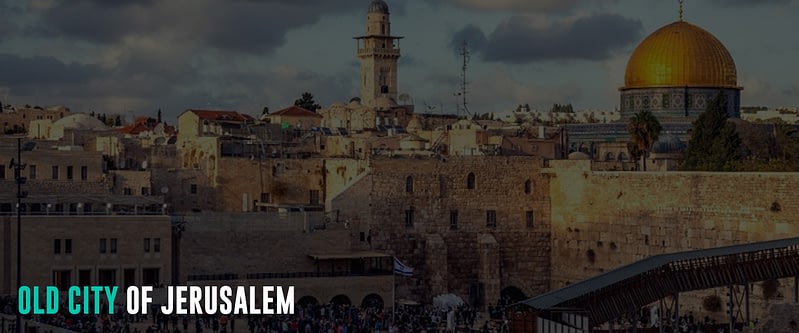
Jerusalem, one of the world’s oldest cities, is considered a holy city for Judaism, Christianity, and Islam. Moreover, the city boasts remarkably well-preserved historical sites despite its turbulent history.
The Old City of Jerusalem, a 0.9-square-kilometer walled area in East Jerusalem, has religious sites and rich history. Of these holy sites, the Wailing Wall separates the old city into four religious quarters: Jewish, Christian, Armenian, and Muslim. Another excellent site is the Church of the Holy Sepulchre, where Christ’s tomb attracts pilgrims and tourists alike.
Within the historic Old City, tourists can walk in Jesus’ footsteps on the Via Dolorosa, pray at the Western Wall, visit the Church of the Holy Sepulchre, and tour the Tower of David. In addition to the religious sites, the Dome of the Rock is a notable monument recognized by all three religions. Another important site is the Al-Aqsa Mosque at the Temple Mount. Outside the Old City, visitors can enjoy attractions such as the Garden Tomb, the City of David and Hezekiah’s Tunnels, the Jerusalem Botanical Gardens, and the Biblical Zoo. Also worth visiting are the Mar Saba Monastery, Yad Vashem, and St. George’s Monastery.
The Old City and its walls were added to the UNESCO World Heritage Site list in 1981.
Bethlehem and the Church of the Nativity
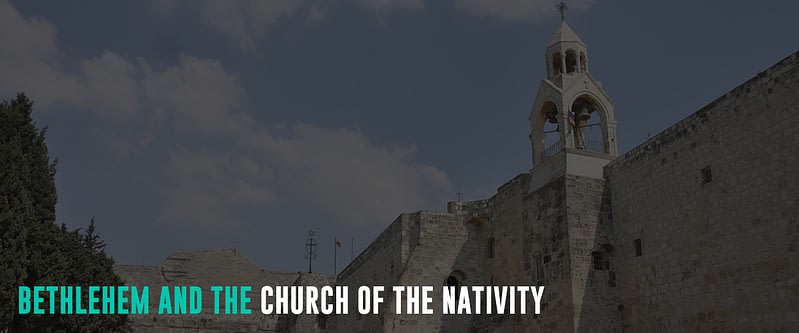
The historic city of Bethlehem is just 10 kilometers south of Jerusalem in the West Bank and is a UNESCO World Heritage Site. It is home to the Church of Nativity, built on the site where Jesus Christ was born, a popular destination for Christian pilgrims, particularly during the Christmas season. Other attractions include Rachel’s Tomb and areas related to biblical events. Nearby, visitors can also enjoy the natural beauty of Herodium Hill and the panoramic views of the Dead Sea. Thus, visiting Bethlehem is essential when exploring Israel and learning about its rich religious and cultural heritage.
The Dead Sea
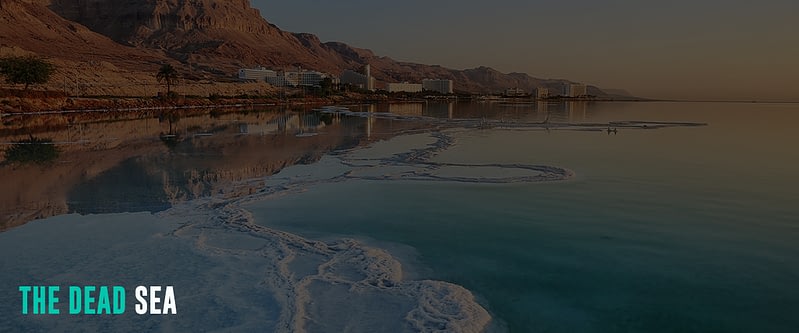
The Dead Sea, on the border between Israel and Jordan, is a wacky natural wonder and is the lowest point on Earth. Visitors can effortlessly float in its vivid turquoise waters thanks to its high salt content. Moreover, the Dead Sea’s saline water and mud offer proven benefits for skin and joint problems, making it a popular destination for tourists seeking health and wellness experiences. Along the shoreline are beach resort areas with facilities for visitors who want to take a dip and wash off the saltwater afterward. Additionally, the rugged landscape surrounding the sea adds to its allure.
A visit to the Dead Sea promises a unique and rejuvenating experience, allowing visitors to float on its buoyant waters and indulge in revitalizing mud treatments. The Dead Sea is conveniently a one-hour drive from Jerusalem. It is also accessible through regular bus and shuttle schedules from Tel Aviv.
Other noteworthy tourist attractions near the Dead Sea include the Masada Mountains, Mujib Nature Reserve, Kerak Castle, and the Dead Sea Museum.
Masada National Park and Fortress
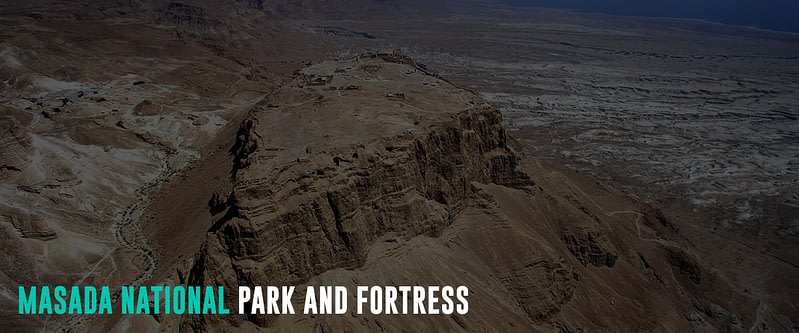
Masada is an ancient fortification in the Judean Desert overlooking the Dead Sea. It holds great historical significance as the site of the last stand of Jewish patriots against the Roman army in 73 A.D. Built by King Herod the Great, the palace complex showcases the classic style of the early Roman Empire. At the same time, the surrounding fortifications offer a glimpse into the past. Visitors can explore the ruins by taking the cable car or hiking up the Snake Path for panoramic views. An informative audio guide in multiple languages is also available for visiting guests.
Masada National Park and Fortress are a UNESCO World Heritage Site. A visit to this mountaintop fortress is a must-do in Israel, providing breathtaking vistas and a glimpse into ancient history.
Tel Aviv
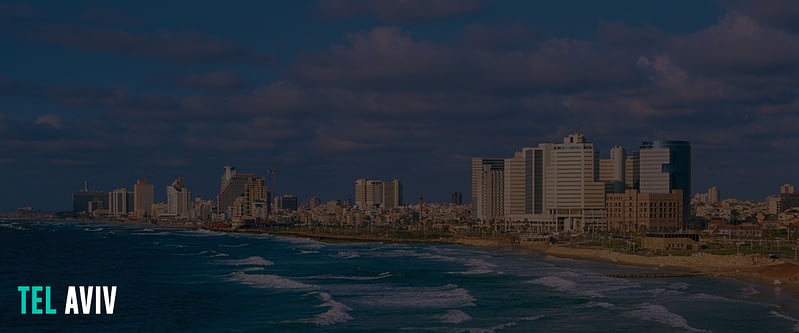
Tel Aviv, the “Mediterranean Capital of Cool,” is Israel’s primary tourist entry point. The vibrant city of Tel Aviv offers a cosmopolitan atmosphere, sandy beaches, and lively nightlife that goes well into the early hours of the morning. And with its iconic Bauhaus buildings and thriving cultural scene, Tel Aviv offers something for everyone.
Visitors can explore the White City area, a UNESCO World Heritage Site, and marvel at the stunning architecture. They can also visit museums like Beit Hatfutsot and the Eretz Israel Museum to delve into the country’s history and heritage. Moreover, visitors should not miss the bustling Carmel Market and stroll along the scenic Tayelet promenade.
Aside from the bustling city, Tel Aviv has some of Israel’s most happening beaches and nightlife. It includes Gordon Beach, Frishman Beach, and Banana Beach. And with an extended coastline, Tel Aviv offers many water activities and access to its rich marine parks.
Other popular tourist attractions in Tel Aviv are the Yarkon River and Park Hayarkon, Dizengoff Circle, the Tel Aviv Museum of Art, and Bialik Street.
Jaffa
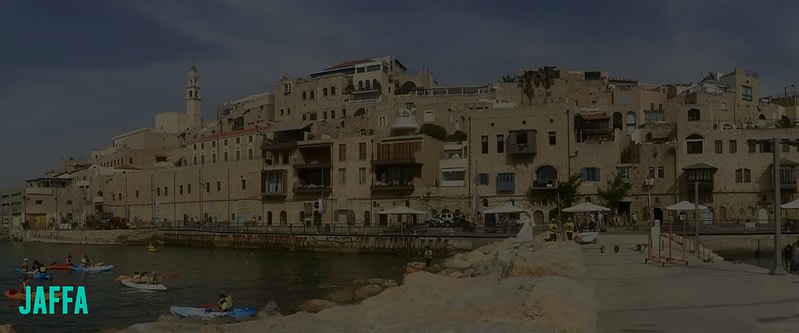
The ancient port city of Jaffa is picturesque and vibrant, making it a must-visit destination in Israel. As visitors explore the narrow streets and courtyards, they can immerse themselves in the unique atmosphere of the famous flea market. Additionally, one can admire the majestic view of the Clock Tower, which dates back to the Ottoman Empire. Jaffa also boasts several renowned tourist attractions, including the Jaffa Port, Slope Park, HaPisgah Gardens, Great Mosque, and Ilana Goor Museum. To add to the charm, every Thursday night, the flea market comes alive with music and entertainment shows that should not be missed.
For a deeper understanding of the city’s history and culture, a Jaffa Walking Tour is highly recommended.
Haifa
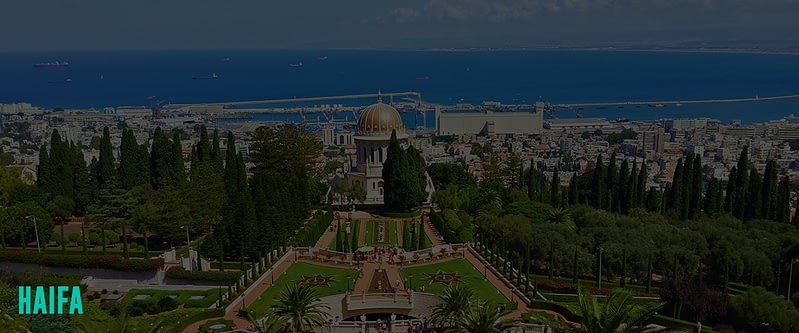
Haifa is a coastal city in northern Israel known for its stunning views and cultural diversity. The town has gardens, beaches, promenades, and monasteries on a cliff.
The main attraction is visiting Bahá’í Gardens, a UNESCO World Heritage Site, and enjoying the panoramic views from Mount Carmel. Travelers can also explore the Haifa Museum of Art and Tikotin Museum of Japanese Art or visit the art galleries of Ein Hod Artists Village. A cable car takes visitors to Stella Maris Carmelite Monastery and hikes the trails at Carmel National Park. Moreover, visitors can go windsurfing, kiteboarding, or stroll along Bat Galim Promenade and relax on Haifa’s beautiful beaches. Haifa offers a mix of art, nature, and cultural experiences for a memorable visit.
Sea of Galilee
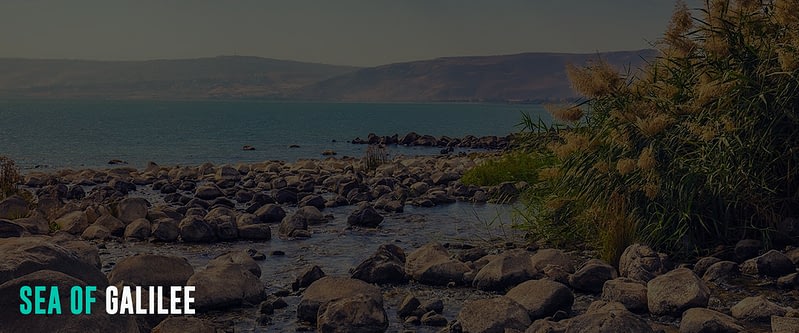
The Sea of Galilee, or Lake Kinneret, is a beautiful freshwater lake in Israel. It is a popular destination for Christian pilgrims to see where Jesus walked on the water. Another attraction in the Sea of Galilee is the 65-km long Jesus Hiking Trail that visits places where Jesus worked his ministry. Moreover, people come from all over the world to be baptized at the spot where the lake flows into the Jordan River.
Aside from its freshwater, Kinneret is also famous for its hot spring water, where visitors can indulge in massage, mud treatment, and thermal baths. The renowned Hamat Gader Hot Spring is a must-visit, a secluded thermo-mineral spring five miles from Galilee. Other popular attractions are Arbel National Park, Mount Tabor, Tel Dan, and Korazim National Park. Don’t miss the chance to visit the Jordan River Village and Naharayim. With its historical significance and breathtaking landscapes, the Sea of Galilee is a must-visit destination in Israel.
Mar Saba Monastery
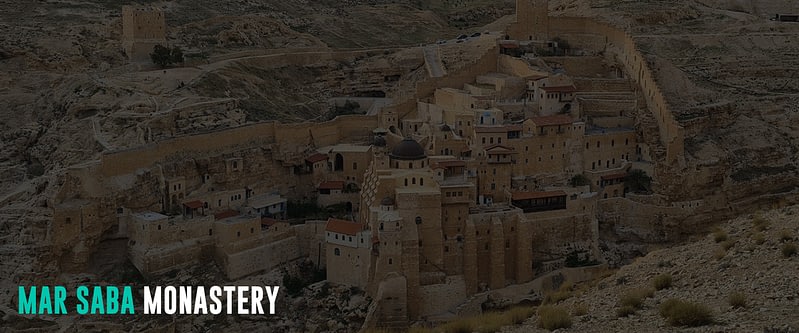
The Holy Lavra of Saint Sabbas, known as Mar Saba Monastery, is an ancient Greek Orthodox monastery in the West Bank. Perched on the cliff face, it offers awe-inspiring views of the surrounding landscape. Founded by Saint Sabbas in the 5th century, this Byzantine marvel stands as one of the oldest continuously inhabited monasteries worldwide. Although women are restricted from entering the main compound, they can glimpse the sanctuary from the Women’s Tower. A visit to Mar Saba provides a unique day trip opportunity from Bethlehem or Jerusalem, allowing visitors to immerse themselves in the Holy Land’s rich history and spiritual significance.
Makhtesh Ramon
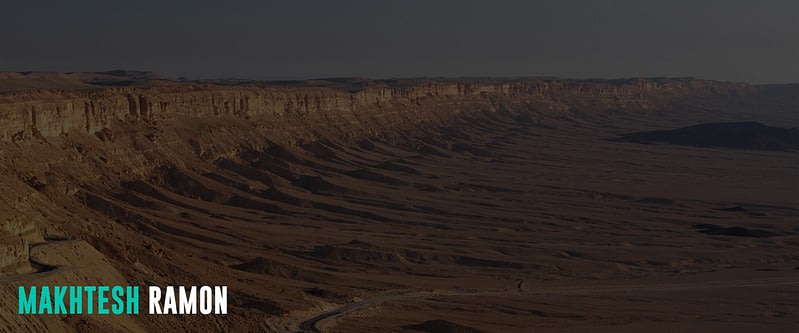
Makhtesh Ramon, also known as Ramon Crater, is a stunning geological feature in Israel’s Negev desert. It is the world’s most enormous erosion cirque, measuring approximately 8 km wide, 40 km long, and reaching a depth of 500 meters. Unlike its appearance, it is not a meteor impact or volcanic crater. Instead, this remarkable formation took shape over millions of years as the ocean gradually receded, leaving a vivid and diverse landscape behind.
For adventurous travelers, Makhtesh Ramon offers a range of exploration options. Whether hiking, biking, or driving, visitors can traverse the varied terrain and immerse themselves in its natural splendor. In addition, camping opportunities provided by local Bedouins enable a deeper connection with the surroundings and a chance to witness the crater’s beauty firsthand.
Situated on the northern edge of the crater, the town of Mitzpe Ramon provides a picturesque vantage point for admiring this natural wonder. As part of the Ramon Nature Reserve, the area has been designated as Israel’s largest national park, ensuring its preservation for future generations.
Primary Spoken Language(s)
Hebrew is the official language of Israel, and almost the entire population speaks it either as native speakers or as a second language. About one-fifth of the country’s population speaks Arabic and has a special status under Israeli Law. Other common languages in Israel are English and Russian.
Safety Concerns

Israel is a relatively safe country for tourists, despite its reputation for armed conflicts and terrorism with the neighboring Palestinian territories. The country ranks 134th out of 163 countries on the 2022 Global Peace Index, while the US Department of State recommends increased caution when traveling to Israel.
Due to the existing terrorism, civil unrest, and armed conflicts with Palestine, do not travel to Gaza and increase caution when traveling to West Bank. Don’t go near demonstrations, public protests, or gatherings that draw large groups of people. These can be a target for terrorism and violence. Moreover, travelers are advised to avoid the borders of Syria, near the Golan Heights.
Tourists with vehicles should exercise caution when parking in popular travel destinations. Always lock the car and do not leave valuables in sight.
Petty theft is moderately common in high-traffic tourist areas. But these can be avoided by staying vigilant and traveling in groups. Avoid carrying valuable belongings and leave copies of identification documents at the hotel safe. Take only the most essential documents and personal effects as much as possible.
In emergencies, dial 100 for police, 101 for ambulance, and 102 for fire.
Local Laws
There are several cultural norms in Israel that tourists should be aware of. It is also best to observe these norms and avoid discussing politics.
- The Sabbath in Israel starts at sunset Friday and until sundown Saturday. Hence, avoid driving and using mobile phones or digital cameras during Sabbath in Orthodox neighborhoods as it may offend people.
- Always carry originals or copies of your passport, visa, or entry permit in the Palestinian Territories.
- Palestinian law has the death penalty for some crimes, including treason, helping an enemy, and murder.
- Gaza has Islamic law where drinking alcohol and homosexual acts are illegal. Take care not to offend in Gaza and the West Bank, avoid public displays of affection, and dress conservatively.
Budget Considerations
Travel cost to Israel depends greatly on tourists’ preferences and the travel season. And although Israel is slowly becoming an expensive destination, there are still ways to keep your budget in place.
Accommodation
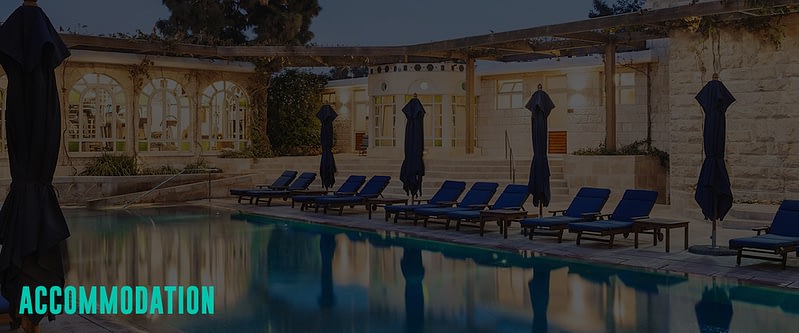
Hostels are widely available in Israel at an average rate of $25 per night for a dorm bed and $60 for privates. There are also many budget hotels, ranging between $60 and $80. In addition, travelers can find an Airbnb private room for $70 or an entire apartment or house for between $100 and $150 per night. Depending on the location, travelers can enjoy the comfort of a three-star hotel for $150 per night and $400 for five-star hotels.
Free wifi is standard in almost all types of accommodation, and most offer complimentary breakfast.
Food
Budget travelers to Israel can spend $10 for street food meals such as falafel or shawarma sandwiches with a drink. They can also get a fast food combo meal for $15 or dine in cheap restaurants for $17. Additionally, expect to pay around $40 for a three-course meal in a mid-range restaurant and a lot higher for high-end places.
Travelers who want to go grocery shopping and cook food must allocate around an $80 weekly budget.
Attractions and Transportation
Admission costs to attractions in Israel vary. Entry at most national parks is $8 to $10, while significant museums collect between $11 and $14. Meanwhile, most biblical sites and attractions are free and accessible to visitors.
A one-way ticket for public transport in Israel ranges between $1.50 and $1.80, while taxi rates start at $4 with increments of $1.10 per kilometer. Meanwhile, travelers who want flexible schedules and activities can hire a car for as low as $40 daily for a multi-day rental. But consider adding the fuel cost for the duration of your road trip.
Average Two-Week Cost
Budget travelers in Israel can live on a daily budget of $70 or $980 for a two-week trip. With this budget, it is possible to cover essential expenses such as accommodation in hostel dorm beds, meals consisting of homecooked dishes or street food, and using public transportation. Additionally, the budget allows for exploring numerous free museums, attractions, and activities throughout the country.
On the other hand, mid-range travelers spend at least $230 daily or $3220 for two weeks. It includes staying in a three-star hotel, taking occasional taxis, and dining in local restaurants. The budget also covers a few paid activities and visiting several destinations.
Lastly, travelers can enjoy luxury and privacy in Israel for $550 daily or $7700 for two weeks. It covers accommodation in five-star hotels, splashing out on meals, taking domestic flights, and renting a car for transport. In addition, the budget allows availing of all the paid tours and activities they want. So for them, the sky is the limit for travel.
Customs And Import Restrictions

Israel Customs exempts visitors from customs duties on personal clothing, gifts, and other essentials up to $250. Travelers can also bring tax-exempt items, as follows:
- One liter of alcohol, liquor, and spirits; and two liters of wine – for travelers 18 years and above
- 250 ml alcoholic cosmetics (perfumes)
- 250 grams of tobacco; 200 cigarettes
- Gifts and other essentials not exceeding $200 for each traveler two years and above. As part of this amount, travelers can bring types of food up to 3 kilograms, provided that the weight of every kind of food does not exceed 1 kilogram.
Moreover, visitors can import and must declare personal equipment, such as cameras, laptops/computers, typewriters, radio receivers, TV, sound recorder, binoculars, jewelry, musical instruments, record player (turntable), stroller or baby carriage, one tent, camping gear, sports gear, a bike without a motor and various belongings typical to travelers. However, visitors must bring back such personal equipment upon leaving Israel. For some items, Israel Customs might require a refundable guarantee deposit for applicable taxes. The deposit will only be refunded when the items are taken when the traveler leaves Israel.
Restricted Imports
Travelers bringing portable work tools, diving equipment, electric bicycles, new personal computer, UAVs (drones), and similar items must be declared to customs upon arrival. These items require a refundable guarantee deposit upon entry and will be returned to visitors upon leaving Israel on the original set date. However, such guarantee deposits will be realized if travelers fail to take out the items when leaving Israel on time.
Israel Customs also restrict entries of certain goods and products and requires permits from respective authorities. These include:
| Products | Office | Phone | |
| Drone | Ministry of Communications, Ministry of Transportation – Israel Airports Authority | 03-5198282 03-9774521 | requests@moc.gov.il gendela@mot.gov.il |
| Communication products, baby monitors, remote controls, etc. | Ministry of Communication | 03-5198282 | requests@moc.gov.il |
| Plants, seeds | Ministry of Agriculture – plant protection certificate | 03-9681587 | Beit Dagan, public reception hours on Wednesday from 8:30 AM to 3:30 PM |
| Pets | Ministry of Agriculture – veterinary services | 03-9485461 | Mankal@moag.gov.il |
| Weapon and parts | Ministry of Public Security | 077-2324444 | Office phone hours: Sunday to Thursday from 8:00 AM to 5:00 PM, Friday From 8:00 AM to 12:00 PM |
| Helmets, car spare parts | Ministry of Transportation | 5678* | rechev@mot.gov.il |
| Laser Markers | Ministry of Economy | 6680* | Dina.blilti@economy.gov.il |
| Electric scooters, electric bikes | Ministry of Transportation | 5678* | rechev@mot.gov.il |
Prohibited Imports
Israel also prohibits the entry of the following items and products:
- Obscene goods;
- Counterfeits coins and imitations documents;
- Used sacks or any other wrapping material that was used for packaging vegetative material;
- A knife other than a pocket knife and other than a knife intended for usage in a profession, craft, business, household, or any other legitimate purpose;
- A Radar Laser Jammer Detector;
- Pistol, firearms, and similar tools;
- A tear gas canister shaped like a firearm;
- Forbidden games;
- Explosives and flammable substances, living creatures such as vipers, and similar dangerous goods;
- Used apiculture (beekeeping) equipment;
- Goods and tools to make or consume a dangerous drug;
- Goods that have the potential to incite violence, terrorism, or racism;
- Goods that have a manifestation of identification with or sympathy for a terrorist organization.
Visit the Israel Tax Authority website and check out the complete list of tax exemptions (green channel), what must be declared (red channel), restricted and conditional items, and prohibited imports when planning your trip.
Climate Considerations
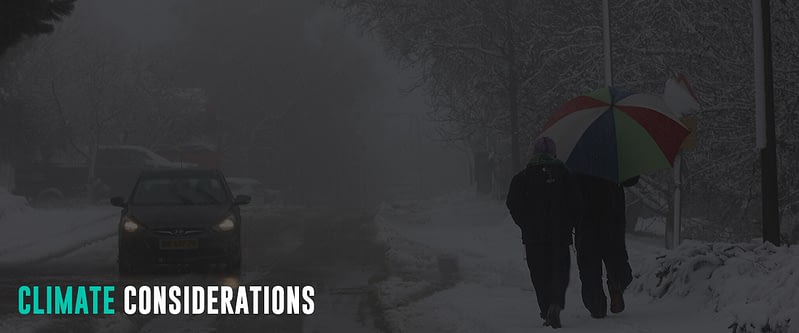
Israel has various climatic conditions because of the country’s diverse topography. Israel has a cool and rainy winter from November to March and a dry and hot summer from April to October.
The average summer temperature ranges between 27 ºC and 33 ºC from June to early September, with high humidity around July-August. While Jerusalem is dryer and cooler, Masada and Eilat are extremely hot at around 43 ºC.
Winters in Israel can fluctuate between December to March. Some winters are mild and sunny, and sometimes severe and overcast. January and February often have heavy rains, with occasional snow. Most places have temperatures between 10 ºC and 15 ºC, while Jerusalem and Galilee are 4 ºC.
Meanwhile, Israel has pleasant weather during the shoulder seasons from April to May and September to November. The average daytime temperature is 21 ºC and can drop to 10 ºC at night. The country also experiences some rain during these periods.
Primary Transportation Options
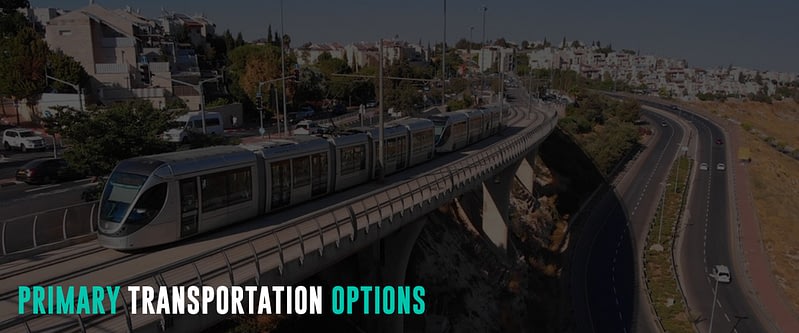
Israel is a small country with a modern transport system comprising airports, railways, and roadways. All of this offers a safe and efficient network connecting all regions nationwide. Hence, getting around is fast and convenient.
Air
Ben Gurion Airport, Israel’s central aviation hub and entry point for most international flight arrivals, is served by over 90 airlines, connecting to major cities worldwide. El Al, the country’s flag carrier, is the leading airline that flies to international destinations. On the other hand, Israir Israeli Airlines and Arkia Israel Airlines operate domestic flights with multiple daily schedules from Tel Aviv to Ramon Airport in Eilat and regular schedules to Haifa Airport and Galilee.
Several private companies also operate special flights from anywhere in Israel upon request.
Train
The national train service Israel Railways is one of Israel’s primary forms of public transportation. It offers a convenient and affordable mode of travel to various destinations across the country.
Travelers arriving at Ben Gurion Airport can take high-speed trains to Tel Aviv, Jerusalem, and Haifa. With trains departing every 30 minutes, it is the fastest option for reaching these cities from the airport. On the other hand, Tel Aviv is well-served by four train stations spanning north to south. Israel’s main commuter lines also run along the north-to-south route, connecting to Beer Sheva in the Negev Desert, Ashkelon, and Nahariya.
To plan your journey, including checking the timetable, routes, and ticket options, it is recommended to visit the Israel Railways website. You can also find information on unlimited passes for convenient travel nationwide.
Bus
The main form of public transportation in Israel is characterized by a very advanced bus network system, with almost every city, town, village, and settlement connected. Bus fares start at $1.50 for distances traveled below 15 kilometers, and payments can be made directly to the driver, at the stations, or using smartphone ride apps. The official app is The Station, although travelers can also use the following smartphone apps: HaTachana, Moovit, Pango, Cello, and Rav-Pass.
There are also unlimited daily or monthly passes for frequent travelers. Travelers can access all public buses for $60, valid for one month. It also covers unlimited travel on the Jerusalem Light Rail, Haifa’s Cable Express, Metronit bus rapid transit system, and the Carmelit underground railway.
Note that most of the bus lines in Israel do not run on Shabbat or Jewish holidays. Bus services mostly end on Friday afternoon and resume Saturday evening. Hence, check the bus timetables and schedules from this website, www.bus.co.il, when planning your trip. Travelers can also check the real-time bus arrival information from the local app Moovit when planning their trip.
Taxis
Taxis in Israel are widely available and cheap by European standards. All city taxis have meters, while inter-city taxis have fixed fares. Hence, check the price before you start your journey.
Generally, taxi rates start at $4 with increments of $1.10 per kilometer. However, there are additional surcharges for calling a taxi, hailing at the Ben Gurion Airport, luggage, night rates, and during Shabbath.
For reliable taxi fares and services, tourists can use the GetTaxi app, the Israeli version of Uber. GetTaxi allows travelers to pay with a credit card.
Car Rental
Israel boasts an extensive road network conveniently equipped with Hebrew, English, and Arabic signage. It follows the right-hand driving system; individuals must be at least 24 years old to rent a car.
Regarding car rental options, both international and Israeli car rental companies offer their services in Israel. Rental rates vary based on the car model and type, with daily rates starting at $40.
Start Trip Planning
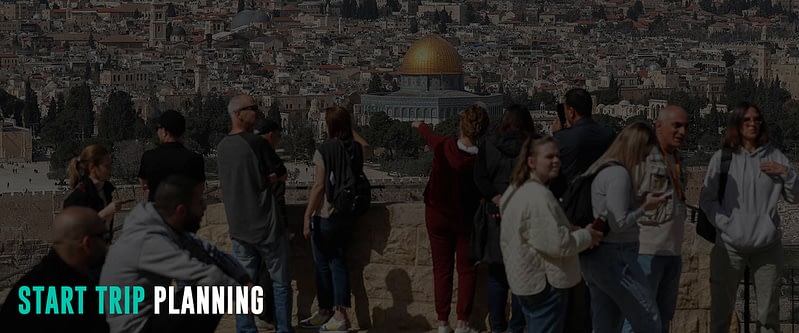
Travel-Wise is made from the ground up to help people travel more, break down the barriers that make it tough to get going, and start your journey as painlessly as possible. Bookmark our other Country Guides to help kick-start your research for future travels. We also offer templated itineraries from our staff and community that help serve as a building block for your trip plans. Alternatively, we also utilize AI to offer a way to generate itinerary ideas. This saves much time just getting you up and running with a template. From there, you can use the trip planner to create your customized itinerary, invite friends and family for collaboration, find others from Travel-Wise to join the trip, book and track important information, journal, and share your experiences at the end or along the way!
